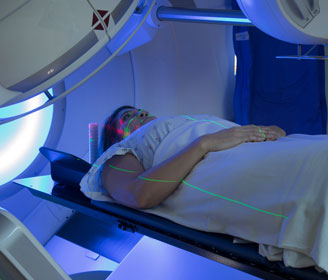Duke Study Suggests Radiation Does Not Extend Mesothelioma Survival
Research & Clinical TrialsWritten by Tim Povtak | Edited By Walter Pacheco

A dual registry analysis by the esteemed Duke University Medical Center has concluded that adjuvant hemithoracic radiation does not improve survival when combined with aggressive surgery for patients with malignant pleural mesothelioma.
Although the U.S. National Comprehensive Cancer Network and the European Society for Medical Oncology recommend the adjuvant radiation – as do many doctors – the Duke research team has challenged the conventional treatment with this report.
“The receipt of adjuvant hemithoracic radiation was not associated with improved survival when compared to no radiation,” the authors concluded. “Radiation was associated with significant toxicity.”
Annals of Surgery published the study in June. Lead and corresponding author Dr. Vignesh Raman declined to provide additional insight or perspective on the findings to The Mesothelioma Center at Asbestos.com.
As part of today’s traditional, multidisciplinary treatment for pleural mesothelioma – a rare cancer with no definitive cure – adjuvant radiation is often used with surgery and chemotherapy for patients with early-stage disease.
The report cites an earlier mesothelioma clinical trial in Switzerland that also compared survival rates for patients receiving adjuvant radiation against patients receiving no adjuvant radiation with surgery. That study found no survival difference, but considerable toxicity.
“Nonetheless, on the basis of small observational studies and phase II trials demonstrating safety and feasibility of adjuvant radiation, [it] continues to be recommended in patients with resected MPM,” the Duke University study said. “The primary aim of this study was to examine the association between adjuvant radiation and overall survival.”
Rethinking Adjuvant Radiation for Mesothelioma
This latest groundbreaking study involved 212 mesothelioma patients from the Duke University registry and 1,615 from the National Cancer Database registry. Both groups were used to compare outcomes of those who received adjuvant radiation with surgery with those who did not receive adjuvant radiation with surgery.
In the Duke registry, 61 patients received the radiation and 151 did not. In almost all cases, it involved intensity modulated radiation therapy, or IMRT. The National Cancer Database involved 426 who received adjuvant radiation and 1,189 who did not. The specific type of radiation was not identified in the NCDB registry.
In both the Duke and NCDB registries, at landmark times of 4.4 months and 4.7 months, respectively, patients who received radiation did not see a survival benefit over those who received no radiation.
Patients in the Duke cohort receiving radiation also had similar incidence of recurrence, time to ipsilateral (local) recurrence and overall recurrence than those who did not receive radiation, based on an adjusted, multivariable analysis.
The exception was the unadjusted incidence of ipsilateral recurrence when the two groups were compared. Only 39% of those who underwent adjuvant radiation experienced local recurrence, compared to 63% of those who did not receive the radiation.
Study authors, however, explained why that exception was not relevant to the issue of extending survival.
“While radiation may offer a measure of local control, it does not sufficiently control the progression of disease to alter survival,” they wrote. “Many studies have demonstrated that ipsilateral thoracic recurrence following radiation is rare, but that distant spread is common, and survival may ultimately be determined by the occurrence of the latter.”
In one subgroup of the Duke cohort that achieved complete or near complete surgical resection, 67% of those who received radiation experienced recurrence before the landmark time compared to 64% of those who did not receive radiation.
Radiation Toxicity Is a Concern
The issue of radiation toxicity also accentuated the study’s questioning of adjuvant radiation for those with pleural mesothelioma. The Duke cohort included 21 patients with grade 3 or 4 events and more than 100 with grade 1-2 events.
“Radiation was associated with significant toxicity, with over 80% of the institutional cohort experiencing at least one adverse event,” the authors wrote. “Patients in our cohort experienced debilitating nausea, emesis, and fatigue during radiation, which likely impaired their nutrition, functional status, and consequently wound healing and immunity, which may have downstream consequences.”
This wasn’t the first time a research team from Duke has questioned conventional thinking regarding the treatment of pleural mesothelioma.
In 2020, many of the same authors published a study that challenged the use of neoadjuvant chemotherapy – used before surgery – after showing no survival benefit. Their study contributed to the growing belief that a chemotherapy combination might be more effective after surgery than before.
This latest research may also contribute to a change in the use of adjuvant radiation.
“Our data suggests that the risks and benefits of adjuvant radiation must be carefully weighed in a multidisciplinary manner before offering it to patients with resected MPM,” they concluded.







